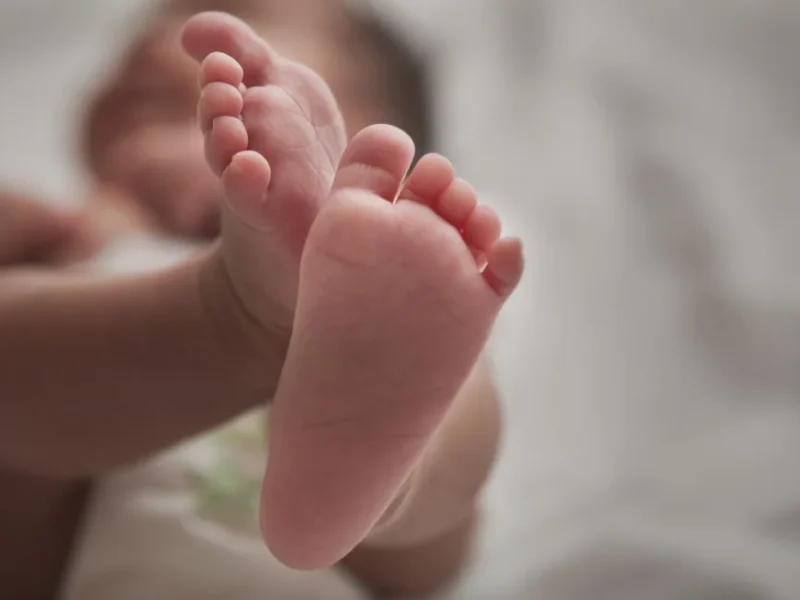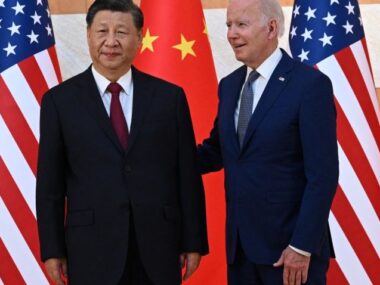The world is facing a need for more babies.
Economists have long been concerned about declining fertility rates, fearing that aging populations could reduce the labor force, drive up inflation, disrupt consumer-driven economies, and overwhelm government programs designed to support the elderly.
These changes are now imminent. A recent study by the Organisation for Economic Co-operation and Development (OECD) indicates that decreasing birth rates will permanently reshape the demographic profiles of the world’s largest economies within the next decade.
What’s happening: If predictions hold, 2064 will mark the first year in modern history when the global death rate exceeds the birth rate.
However, the major economies are already experiencing this: The total fertility rate among the OECD’s 38 member countries fell to 1.5 children per woman in 2022 from 3.3 children in 1960. This is significantly below the “replacement level” of 2.1 children per woman needed to maintain population levels.
As a result, the workforce in many countries is rapidly shrinking.
In the 1960s, there were six working-age individuals for every retired person, according to the World Economic Forum. Today, the ratio is closer to three-to-one. By 2035, it is expected to be two-to-one.
Top executives at publicly traded US companies have mentioned labor shortages nearly 7,000 times in earnings calls over the past decade, according to a recent analysis by the Federal Reserve Bank of St. Louis.
“A reduction in the share of workers can lead to labor shortages, which may raise the bargaining power of employees and lift wages — all of which is ultimately inflationary,” wrote Simona Paravani-Mellinghoff, managing director at BlackRock, in an analysis last year.
While net immigration has historically helped mitigate demographic challenges in wealthy countries, the shrinking population is now a global issue. “This is critical because it implies advanced economies may start to struggle to ‘import’ labor from such places either via migration or sourcing goods,” Paravani-Mellinghoff added.
By 2100, only six countries are projected to have birth rates high enough to sustain their populations: Chad, Niger, and Somalia in Africa, Samoa and Tonga in the Pacific Islands, and Tajikistan, according to research published by the medical journal Lancet.
BlackRock’s expert advises clients to invest in inflation-linked bonds and commodities like energy, industrial metals, agriculture, and livestock to hedge against inflation.
What it means: CEOs and politicians are already responding to the declining birthrates.
Elon Musk, father of 12 children, has stated that falling birth rates will lead to “a civilization that ends not with a bang but a whimper, in adult diapers.”
While his words may be provocative, they are not entirely incorrect.
P&G and Kimberly-Clark, which together dominate the US diaper market, have seen baby diaper sales decline in recent years, while sales of adult diapers have been a growing segment.
Other companies are also shifting their focus to older demographics.
Nestlé’s CEO, Mark Schneider, recently mentioned that the company is prioritizing the nutritional needs of people over 50 rather than producing infant formula.
Overstretched governments: In January, French President Emmanuel Macron announced a plan for “demographic rearmament” in France, including fertility testing and more parental leave. Former President Donald Trump also recently pledged that, if elected, he would support “baby bonuses for a new baby boom” in the US.
The Centers for Disease Control (CDC) reported that the US birth rate in 2023 dropped to a record low, reversing a slight increase seen during the Covid-19 pandemic. The Congressional Budget Office (CBO) predicts that deaths will outnumber births in just over 15 years.
These findings influence the agency’s economic forecast and budget projections, said Molly Dahl, a senior advisor at the CBO.
“What you’re seeing is increased spending on programs like Medicare and Social Security as the baby boomers are aging into those programs. And then of course, fewer workers relative to the number of people who are receiving Social Security and Medicare benefits,” Dahl explained.
Social Security payments still provide about 90% of income for more than a quarter of older adults in the US, according to Social Security Agency surveys.
Without intervention, the Social Security trust fund will be depleted by the mid-2030s, meaning that only a portion of retirees’ expected benefits will be paid.
The AI solution: Some business leaders and technologists see artificial intelligence-driven productivity gains as a potential solution.
“We are not having enough children, and we have not been having enough children for long enough that there is a demographic crisis,” former Google CEO and executive chairman Eric Schmidt said at the Wall Street Journal’s CEO Council Summit in London last year.
“In aggregate, all the demographics say there’s going to be a shortage of humans for jobs. Literally too many jobs and not enough people for at least the next 30 years,” Schmidt noted.
However, he believes artificial intelligence will significantly alleviate these issues. A recent report by Goldman Sachs projected that generative AI could boost global GDP by up to 7% over a decade.
Still, some experts caution that it is too early to determine AI’s overall economic impact.
A study by analysts at the Federal Reserve Bank of Richmond concluded that artificial intelligence could enhance labor productivity by 1.5% to 18% over the next decade. “This ranges from barely noticeable to substantial,” they said.
The long-term solution to declining fertility rates, according to Stefano Scarpetta, director for employment, labor, and social affairs at the OECD, is to promote gender equality and a fairer distribution of work and childrearing responsibilities. This also means more paid parental leave and financial support.
In the meantime, he emphasized, “this is not just a temporary blip.” Companies and governments need to prepare now for what he terms a “low-fertility future.”
China cautions against a “vicious cycle” of economic decoupling from Western nations.
Chinese Premier Li Qiang has cautioned against a “vicious cycle” of economic decoupling from the West, as Beijing faces increasing global resistance to its rising electric vehicle (EV) exports, according to CNN reporters Juliana Liu and Joyce Jiang.
At the “Summer Davos” forum in Dalian on Tuesday, Li addressed international executives, defending China against claims that overcapacity in key green industries has led to the dumping of products like EVs and solar panels on the global market.
“If countries only consider maximizing their own interests, ignore the interests of others, and revert to decoupling … it will increase economic costs for all of society and the world,” Li stated. This approach, he warned, would drag nations into a “vicious cycle of scrambling for a cake that becomes smaller and smaller,” which is an undesirable outcome.
Li’s comments, as the second most powerful leader in China after Xi Jinping, came a day after Canada announced it might impose tariffs on Chinese-made EVs. The Canadian government cited “unfair competition” from China’s “state-directed policy of overcapacity” as a reason for considering such measures and will initiate a 30-day public consultation next month to evaluate potential responses.
Previously, the Biden administration quadrupled tariffs on EV imports from China, increasing them from 25% to 100%, in an effort to protect American jobs and manufacturing, although Chinese EV sales to the U.S. remain minimal.
Prosecutors are pressing the Justice Department to file criminal charges against Boeing in relation to the 737 Max aircraft.
Prosecutors are urging the US Justice Department to file criminal charges against Boeing over safety issues related to its 737 Max aircraft, according to a source familiar with the situation, CNN reports.
These potential charges mark another significant blow to Boeing’s reputation, which has already been tarnished by questions surrounding the safety and quality of its jets. Beyond the two fatal crashes involving the 737 Max in 2018 and 2019, the company has faced additional safety concerns. For instance, in January, a door plug on an Alaska Air 737 Max blew out mid-flight, creating a gaping hole in the jet’s side, further damaging Boeing’s standing.
In January 2021, the Justice Department and Boeing reached a settlement over charges that the company defrauded the Federal Aviation Administration during the 737 Max’s certification process. The aircraft, which entered service in 2017, was grounded for 20 months following the fatal crashes. Boeing has admitted that a design flaw caused these crashes. Despite the settlement, the call for criminal charges indicates ongoing scrutiny and accountability efforts concerning the company’s actions.











